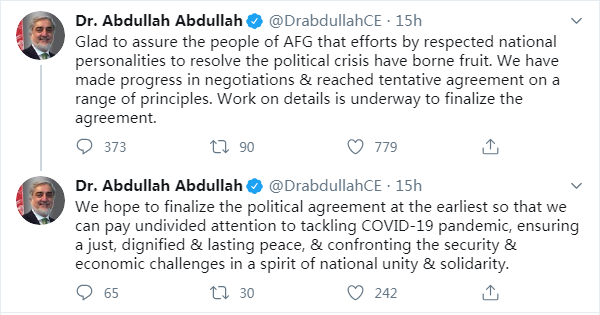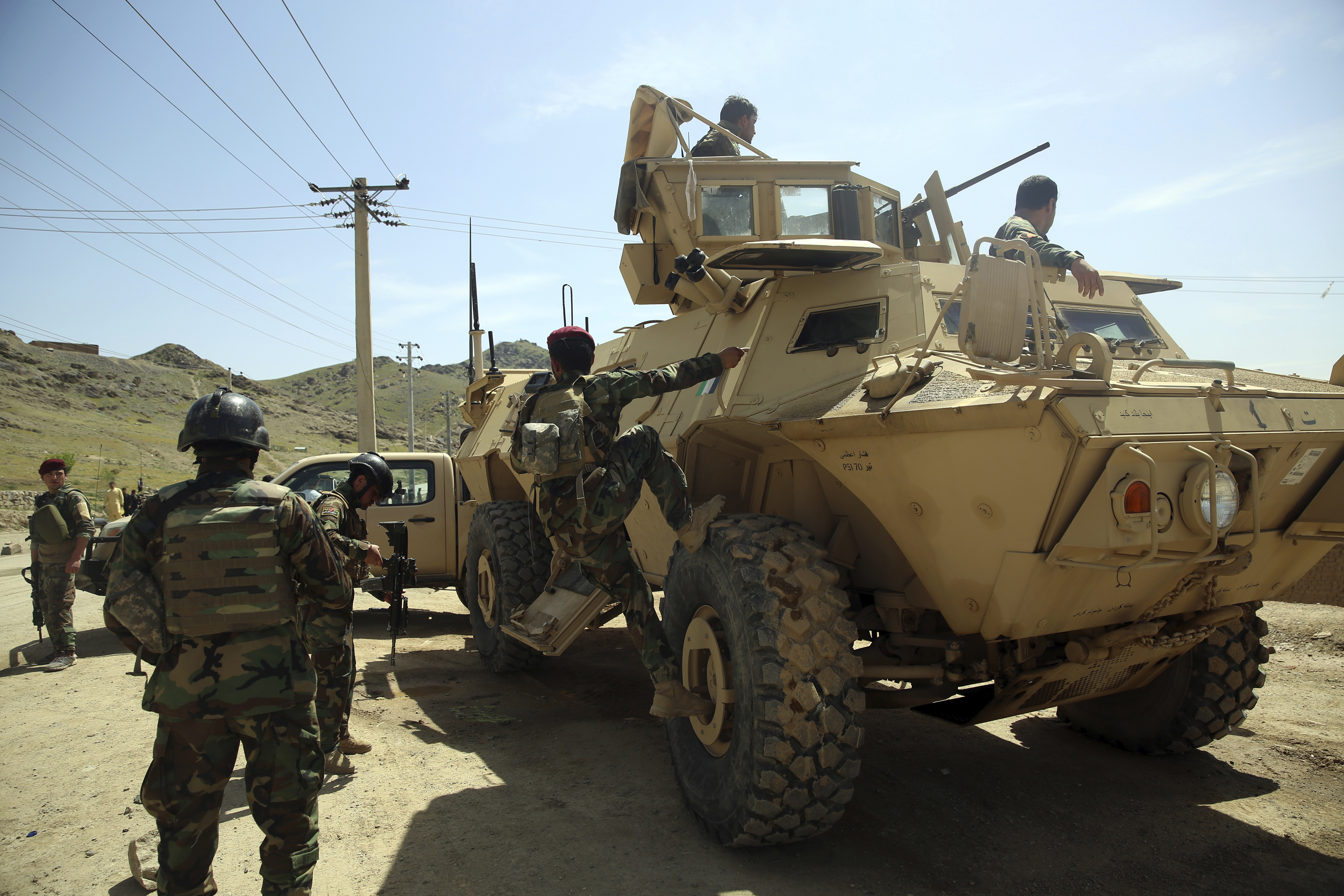A bitter feud between Afghan President Ashraf Ghani and his rival Abdullah Abdullah appeared closer to resolution Friday after Abdullah said the two men had moved forward in talks.
"We have made progress in negotiations & reached tentative agreement on a range of principles. Work on details is underway to finalize the agreement," Abdullah said on Twitter.

Abdullah previously served as Afghanistan's "chief executive" under a power-sharing deal with Ghani, but lost that post following last year's presidential elections that Ghani won amid claims of fraud.
Instead of accepting defeat, Abdullah proclaimed himself president, a title he uses to this day, though the international community only recognizes Ghani as the legitimate president.
According to an AFP source, an Afghan official said the two sides reached an agreement which will offer Abdullah the position to lead the eventual peace talks with the Taliban while also getting a 50-percent share of the government including several high-ranking positions for his allies.
Abdullah would also gain the title of "executive prime minister," the official said, stressing that Ghani has not accepted the proposal.
On Thursday, Ghani's second vice president, Sarwar Danish, confirmed that Abdullah would be leading the country's peace council.
"Efforts are underway to finalize an agreement with Dr. Abdullah within the framework of a National Participation Government," Danish said.
The announcement came amid the coronavirus crisis boiling in the country. As of May 1, Afghanistan has reported over 2,335 coronavirus cases and 68 deaths, but international observers believe numbers could be much higher, given the lack of testing.

Afghan special forces stand guard at the site of a suicide bomber attack on the outskirts of Kabul, Afghanistan, April 29, 2020. /AP
Afghan special forces stand guard at the site of a suicide bomber attack on the outskirts of Kabul, Afghanistan, April 29, 2020. /AP
Taliban step up attacks on Afghan forces
Meanwhile, another internal player defined the peace process in Afghanistan, Taliban, has been ramping up with attacks, trying to cash out the chaos during the coronavirus pandemic.
According to the data compiled by the Reuters, the Taliban have mounted more than 4,500 attacks in Afghanistan, marking a sharp escalation in violence, in the 45 days since signing a deal with the United States.
Two sets of data, one from a Western military source and one from an independent body, both show attacks by the hardline Islamist group up by more than 70 percent between March 1 and April 15 compared with the same period a year ago.
Separately, Afghan government data indicates that more than 900 Afghan local and national forces were killed during that same period, up from about 520 a year earlier.
Meanwhile, Taliban casualties fell to 610 in the period, down from roughly 1,660 a year ago, as U.S. and Afghan forces have reduced the number of offensive attacks and air strikes following the U.S.-Taliban accord.
In Washington, Pentagon spokesman Jonathan Hoffman told reporters that while the Taliban have adhered to a commitment in the February 29 deal not to mount attacks on U.S.-led coalition forces or major cities, the militants' level of violence "is unacceptably high" and "not conducive to a diplomatic solution."
"We have continued to do defensive attacks to help defend our partners in the area and we will continue to do that," Hoffman added.
The four provinces that have reported the highest number of cases of the infection have also been the ones hit the most by Taliban violence in recent weeks, according to the two data sets and at least three senior Afghan and Western officials.
"Taliban fighters are not hitting large government centers or cities, they are focusing on villages in Herat, Kabul, Kandahar and Balkh provinces that have reported the highest number of coronavirus cases," a senior Western security official said on condition of anonymity.
Western security officials, diplomats and international observers said the Taliban's strategy to slowly erode government control of rural areas and then position themselves to besiege cities during the pandemic could derail the peace deal.
"They are slowly encircling all of Afghanistan's major cities," said Jonathan Schroden, an expert with the Center for Naval Analyses who has provided assessments on the security situation in Afghanistan to the U.S. military and Congress.
(With input from agencies)